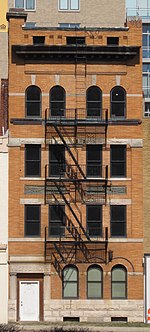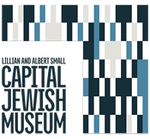Luzon Apartment Building
Apartment buildings in Washington, D.C.Residential buildings completed in 1896Residential buildings on the National Register of Historic Places in Washington, D.C.Romanesque Revival architecture in Washington, D.C.Washington, D.C., Registered Historic Place stubs

The Luzon Apartment Building, also known as The Westover, is an historic structure located in the West End neighborhood of Washington, D.C. The building is one of the last surviving structures from the formative period of apartment buildings in the city. The Romanesque Revival building was designed by Nicholas T. Haller and completed in 1896. It was listed on the National Register of Historic Places in 1994.
Excerpt from the Wikipedia article Luzon Apartment Building (License: CC BY-SA 3.0, Authors, Images).Luzon Apartment Building
H Street Northwest, Washington
Geographical coordinates (GPS) Address Nearby Places Show on map
Geographical coordinates (GPS)
| Latitude | Longitude |
|---|---|
| N 38.900277777778 ° | E -77.015833333333 ° |
Address
H Street Northwest 315
20548 Washington
District of Columbia, United States
Open on Google Maps








